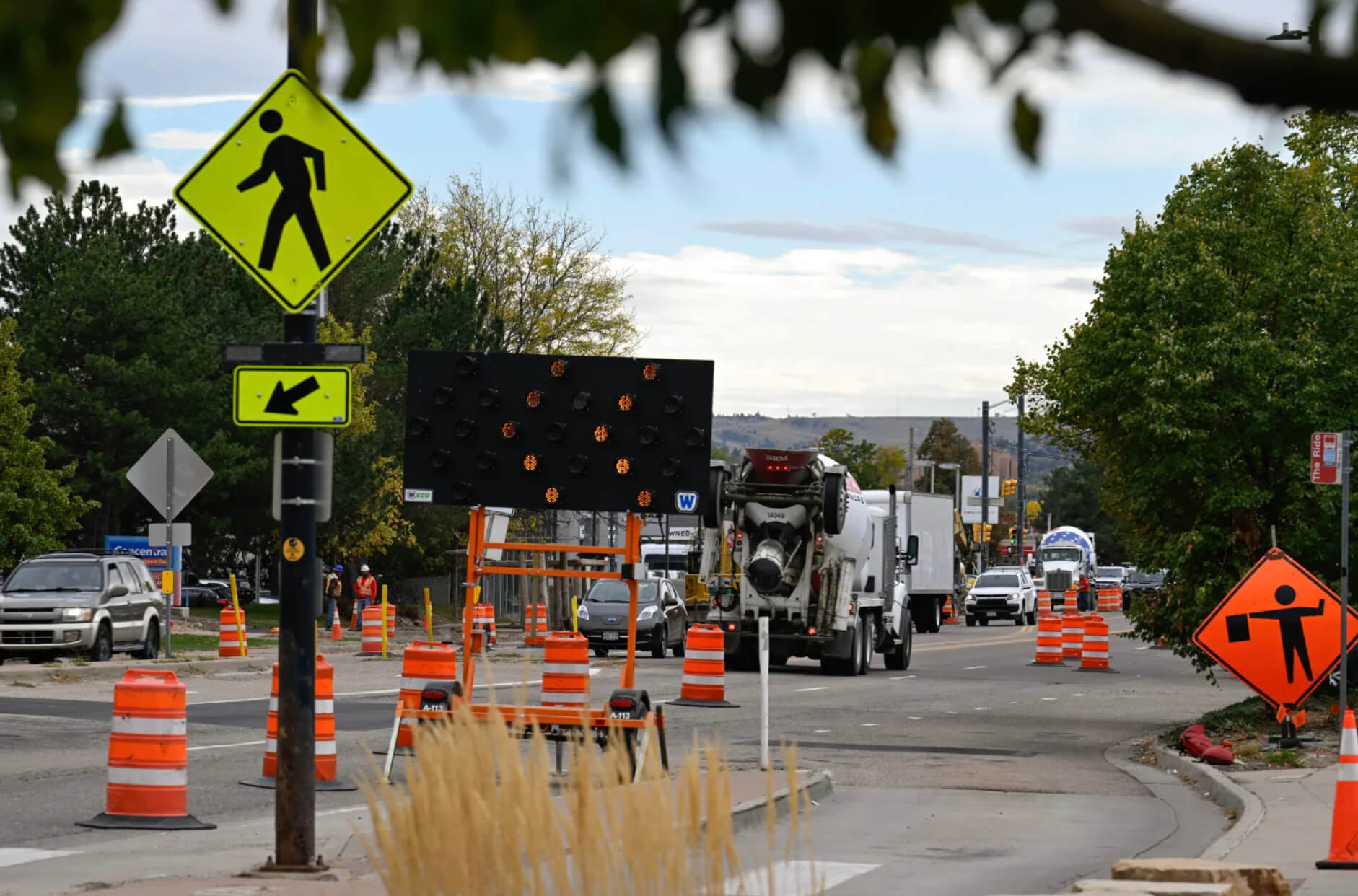Transportation Maintenance Fee: Standing on Principle

October 30, 2025
Originally published by BizWest, October 29, 2025.
 I hate it when the business community is out of sync with our City of Boulder colleagues, but sometimes you just need to stand on principle. And that is where the Boulder Chamber stands on the recently adopted Transportation Maintenance Fee (TMF).
I hate it when the business community is out of sync with our City of Boulder colleagues, but sometimes you just need to stand on principle. And that is where the Boulder Chamber stands on the recently adopted Transportation Maintenance Fee (TMF).
A couple of months ago, a good friend from the City of Boulder’s Transportation Division mentioned that they were about to roll out a proposed fee on businesses and residents to cover their identified gap in the cost of maintaining our transportation infrastructure. He told me that they would be moving fast, as they wanted to get the fee approved for inclusion in the 2026 City of Boulder budget. Thus, any chance for public deliberation on the fee would be necessarily condensed.
On any normal occasion, in any normal year, such a conversation would have raised red flags of concern. In this case, and in this year, when we’ve seen a drop of roughly 500 businesses in Boulder and others crying out for support in the face of higher expenses and lower consumer spending, I was incensed.
It isn’t that the Boulder Chamber opposes efforts to secure funding for priority initiatives, including transportation. Case in point is our support for extension of the current Community Culture, Resilience and Safety tax on this year’s ballot. It also doesn’t mean we’re blind to the need for investment in our transportation system. Businesses rely on dependable transportation networks — for convenient workforce commuting, for customer access to commercial centers, and for the efficient movement of goods. Heck, the Boulder Chamber houses Transportation Connections, the organization that works to improve mobility for Boulder businesses and residents.
So, yes, the business community recognizes the value of sustainable funding sources to maintain the infrastructure that keeps Boulder moving. But when it comes to the TMF … we have to call foul.
We acknowledge that the City of Boulder conducted an extensive community dialogue prior to the COVID pandemic regarding possible ways to address the deficit in funding for transportation maintenance. At that time, the notion of a fee to cover those costs was on the table and seemed to be an early contender for further testing in the public realm. And then the world turned upside down and talk of the TMF was shelved. That was five years ago. That was before remote work was standard lexicon and office vacancies would rise to 30% and above. That was before the tariff wars and tightened immigration policies. And so on.
There is nothing wrong with the City of Boulder’s decision to dust off the proposed TMF. Our civic maintenance backlog is real and every year of deferred investment compounds future costs and safety risks. We also know the City of Boulder budget deficit continues to grow. However, the economic environment for our local businesses is similarly stressed. I don’t need to further list the litany of disruptive forces, but let’s just observe that the reason our City of Boulder budget is in the hole is because our businesses aren’t experiencing the same sales tax generating level of activity they did prior to COVID. The circumstances are similarly difficult, if not more so, for our local nonprofit entities.
Failing to recognize how things have changed since prior review of a proposed Transportation Maintenance Fee and how that might impact our businesses (as well as our residents), is a unique level of insensitivity for this town. Councilmember Mark Wallach captured the depth of business community exasperation — yet maybe understated — when he noted, “Five-year-old community engagement is stale.” At the very least, given such an extended break in public dialogue, it seems reasonable for business leaders to wonder if the fee model is appropriate, whether to exempt certain activities, and/or if there is an opportunity to avoid the fee through further budget reprioritization.
Despite hearing our concerns, a 5-4 majority of City Council voted to move forward with adoption of the TMF. City of Boulder staff assured City Council that they will be open to input on rates and other elements of the planned TMF in their further outreach prior to implementation later in 2026, which was the grounds on which some Councilmembers based their decision to procced with the TMF. You can be sure we will monitor closely the planned public outreach process to make sure it meets the promise of true attention to business and resident engagement.
Again, to be clear, the Boulder Chamber has not taken a specific position on the proposed Transportation Maintenance Fee. We will seek final input from our members and stakeholders before acting — balancing the shared goal of maintaining a safe and reliable transportation network with the economic realities facing our businesses and employers – which is exactly what we would expect of our City Council and staff. And that is the principle on which we stand. In the words of Councilmember Tara Winer, “Doing it the right way is the most important thing to me.”
